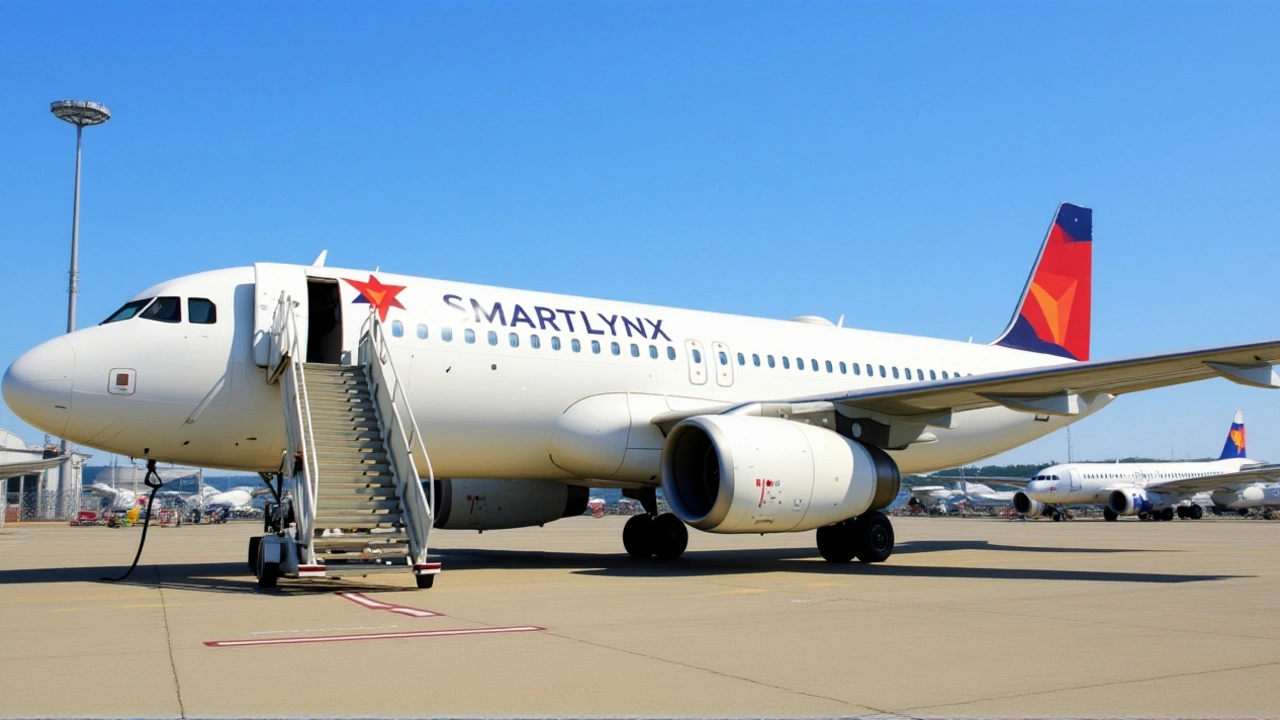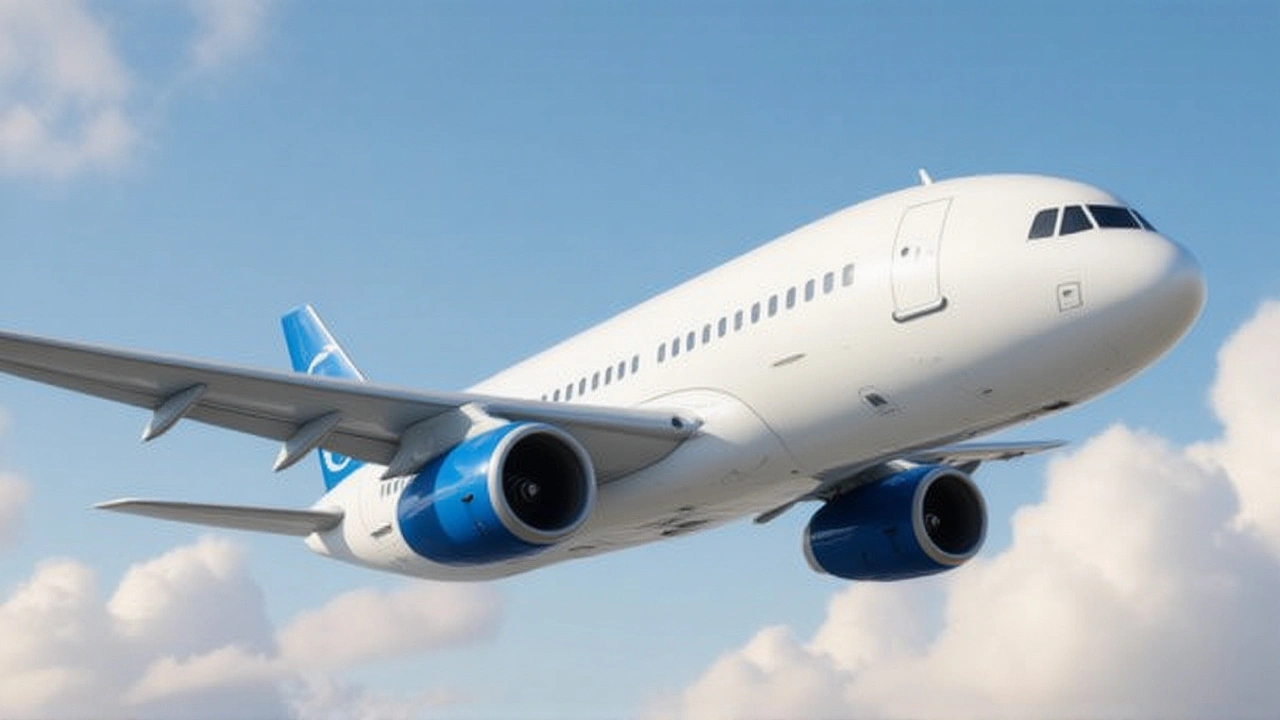Avion Express Philippines has cleared its final regulatory hurdle, securing a temporary operating permit from the Civil Aeronautics Board in August 2025 — paving the way for a November launch at Clark International Airport in Angeles City. The airline, a subsidiary of global aviation giant Avia Solutions Group, won’t sell tickets directly. Instead, it will operate behind the scenes, supplying aircraft, crew, maintenance, and insurance to other carriers through ACMI (Aircraft, Crew, Maintenance, Insurance) leases. It’s a quiet revolution in the skies — one that could reshape how airlines in Southeast Asia handle seasonal surges and sudden fleet gaps.
Why This Matters to Every Filipino Traveler
Passenger traffic in the Philippines jumped exactly 11% in the first quarter of 2025, according to the CAB. That’s not a blip — it’s a trend. The World Travel and Tourism Council forecasts tourism will contribute precisely one-fifth of the country’s GDP by year’s end. But here’s the catch: airlines can’t find enough planes to meet demand. Aircraft deliveries are stuck in supply-chain limbo. Leasing is expensive. And buying new jets? That’s a multi-year gamble most carriers can’t afford. Enter Avion Express Philippines. By offering flexible, short-term wet leases, it lets airlines like Cebu Pacific, AirAsia, or even new regional players test routes to Boracay, Siargao, or Palawan without locking in capital. No long-term debt. No grounded planes. Just more flights when they’re needed most.
The ACMI Model: A Secret Weapon for Asia’s Aviation Surge
ACMI isn’t new — but it’s never been this critical in Southeast Asia. Martynas Grigas, Chairman of Avion Express Philippines, puts it bluntly: “The recovery in passenger numbers has outpaced aircraft availability.” That’s why the company’s first Airbus A320-200 is already being prepped for delivery. Two more will join by June 2026. Each plane will be fully staffed and maintained by Avion Express, ready to be handed over to a partner airline on 30 days’ notice. Think of it like renting a fully loaded truck — engine, driver, insurance, and all — instead of buying one and hiring mechanics. For airlines, it’s a game-changer. It means they can suddenly add a route to Tuguegarao for the Christmas rush, or replace a grounded A320 during typhoon season, without the risk of idle assets.
Avia Solutions Group’s Global Chessboard
This isn’t just a Philippine play. It’s part of a much bigger move by Avia Solutions Group, headquartered in Vilnius, Lithuania. With 209 aircraft under management worldwide, it’s the largest ACMI provider on earth. In the last two years alone, it’s launched BBN Airlines Indonesia, rebranded Skytrans as SmartLynx Australia, certified Thai SmartLynx Airlines, and is finalizing operations in Malaysia and Brazil. And now? Mexico. The strategy is simple: flood high-growth markets with flexible capacity. European carriers like Air France-KLM Group, Lufthansa Group, and TUI use Avia’s services to offload seasonal demand. Now, those same planes — or their twins — can fly from Clark to Cagayan de Oro in July, then return to Europe in December. It’s a global carousel of capacity, optimized for profit and flexibility.

Who’s Running the Show — and What’s Next
Rene Banzon, the local chief of Avion Express Philippines, is focused on execution. “We’re not just adding planes,” he said. “We’re building a system — from crew recruitment to maintenance hangars — that can scale fast.” The company is hiring Filipino pilots and engineers, partnering with local training academies, and setting up a dedicated MRO facility at Clark. The goal? To become the region’s go-to ACMI hub. And with the Philippines’ Department of Tourism pushing to connect 15 new regional airports by 2027, the timing couldn’t be better. Imagine a small airline launching a weekly flight to Siargao using an Avion Express A320 — no upfront cost, no fleet risk. That’s the future they’re building.
Why This Is Bigger Than Just One Airline
This isn’t just about filling gaps. It’s about democratizing air travel in a country where 60% of the population lives outside Metro Manila. Regional airports like Kalibo, Dipolog, and Busuanga have long struggled with inconsistent service. Airlines hesitate to commit because demand fluctuates with tourism seasons. Avion Express removes that barrier. It turns risk into opportunity. And with the Asia-Pacific region projected by IATA to lead global passenger growth over the next two decades, the Philippines is becoming a linchpin — not just for tourism, but for aviation innovation. This model could be replicated across Indonesia, Vietnam, and even Papua New Guinea. The real winners? Travelers who finally get more flight options. And regional economies that get new access to the world.
Frequently Asked Questions
How will Avion Express Philippines affect ticket prices for travelers?
Direct ticket prices won’t change — Avion Express doesn’t sell tickets. But by enabling more airlines to launch or expand routes, especially to underserved areas, competition will increase. More flights mean better scheduling and, over time, downward pressure on fares. In regions like Mindanao and the Visayas, where flights are scarce, this could mean lower prices and more options within the next 18 months.
What’s the difference between ACMI and a regular lease?
A standard dry lease only provides the aircraft. ACMI — or wet lease — includes everything: the plane, fully crewed pilots and cabin staff, ongoing maintenance, insurance, and even operational support. It’s turnkey. For airlines, this means they can launch a route in weeks, not months. For Avion Express, it’s a high-margin service business built on reliability and speed — not aircraft ownership.
Why is Clark International Airport the chosen base?
Clark offers deep infrastructure, proximity to Manila (just 80km away), and underutilized runway capacity. It’s also a designated economic zone with tax incentives for aviation firms. Unlike Ninoy Aquino International Airport, which is maxed out, Clark can handle rapid expansion — making it ideal for a new ACMI operator needing hangar space, crew facilities, and logistics support.
How does this impact European airlines?
European carriers like Lufthansa and TUI face winter slumps in passenger demand. By deploying their excess A320s to the Philippines during Europe’s off-season, they earn revenue from otherwise idle assets. Avia Solutions Group acts as the middleman, managing operations locally while the European airline retains ownership. It’s a smart way to balance seasonal demand across continents.
What challenges could delay Avion Express Philippines’ launch?
Supply-chain delays for spare parts, pilot certification bottlenecks, or sudden changes in Philippine aviation regulations could push timelines. While the temporary permit is secured, final air operator certification requires months of audits. Also, if global fuel prices spike, operating costs could rise, squeezing margins. But with a phased fleet rollout and strong local partnerships, the company is betting on adaptability.
Is this model sustainable long-term?
Yes — if demand stays strong. The Philippines’ tourism growth isn’t temporary. With IATA projecting Asia-Pacific passenger numbers to double by 2040, and regional airports still underdeveloped, ACMI services will remain essential. Avia Solutions Group’s global network gives it leverage to shift assets efficiently. This isn’t a flash in the pan — it’s the new normal for aviation in fast-growing markets.



Orlaith Ryan
November 18, 2025 AT 02:28Hailey Parker
November 19, 2025 AT 18:43Arvind Pal
November 20, 2025 AT 22:58Chris Richardson
November 22, 2025 AT 06:30amrin shaikh
November 23, 2025 AT 11:59jai utkarsh
November 24, 2025 AT 20:04J Mavrikos
November 26, 2025 AT 00:10DJ Paterson
November 26, 2025 AT 08:50Stuart Sandman
November 26, 2025 AT 10:35Nikhil nilkhan
November 28, 2025 AT 08:40Jacquelyn Barbero
November 29, 2025 AT 12:38John Bartow
December 1, 2025 AT 05:41toby tinsley
December 1, 2025 AT 17:15Sandy Everett
December 2, 2025 AT 17:58Richard Berry
December 2, 2025 AT 23:19Mark Archuleta
December 4, 2025 AT 12:31Damini Nichinnamettlu
December 5, 2025 AT 04:02Dan Ripma
December 5, 2025 AT 17:48Pete Thompson
December 7, 2025 AT 07:01Chandan Gond
December 8, 2025 AT 04:49